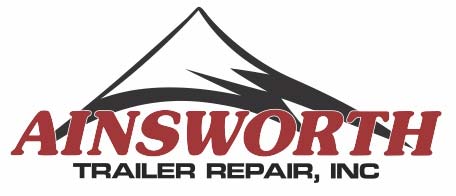Own a Horse, Dump or Recreational trailer? Here are Some Tips to Help Ensure a Safe Tow!
Want to know how you can save on unnecessary trailer repair costs and enjoy greater control and safety during towing? The following tips on trailer use may save you money:
Trailer Inspection
Follow these tips to maintain your trailer’s condition and bring a significant reduction in trailer repair costs and risks of accidents:
1. Regular Maintenance is Important!
It goes without saying that proper inspection and maintenance of your trailer will help avoid a lot of issues down the road and also lower the expenses for trailer repair.
- Before heading out, check everything, from the tires to brakes and the hitch.
- Also make sure that the turn signals, running and brake lights are also functioning properly.
- To improve line of sight, check the mirrors on both sides of the truck, or install mirrors that provide a uniformly distributed view and ample vision for a safe tow.
2. Get the Balance Right
To avoid any balance issues along the journey, the ideal weight distribution should be 60:40 – 60% of the load in front, with the remaining 40% at the back.
- Aside from this split, pay attention to the side to side load balance as well and try maintaining a lower center of gravity.
- Balanced weight distribution will help you maneuver the trailer more easily, reduce trailer repair costs, and also ensure optimum safety and control while driving.
- Improving balance also has several other advantages, like extending the life of the tires and preventing any excessive wear and tear.
3. Is the Hitch in Place?
Once the trailer hitch is attached, check and recheck again that it has been properly latched in. Improper latching of the bolt could result in the trailer detaching from the vehicle during a bump and cause significant damage or personal injury. When checking the hitch, also make sure that the trailer ball is also tight and there are now visible cracks or excessive wear.
4. Check Periodically
Apart from the initial inspection, performing periodic checks during travel will ensure that everything is in good working order. When you stop for fuel, make a quick inspection of the transmission fluid and oil, the hitch and hitch pin, the tires and wheel lugs, the turn signals, brake lights, etc.
Trailer Control
Controlling and maneuvering the trailer requires expertise and a little care. Here’s a heads up:
5. Overdrive with Care!
Be extra careful using automatic overdrive transmissions when you are operating with heavy trailers on steep inclines. Lock out the overdrive completely if you find it continually downshifts to a lower gear. However, if there isn’t any excessive shifting, continue in overdrive as its much smoother and also saves a lot of fuel.
6. Cruise Control Option
Skip the cruise control option because it isn’t recommended during a tow.
7. Stop and Follow Distance
You never know what the road holds, so to be on a safe side, allow at least 25% more stopping and following distance when pulling any loaded or heavy trailer.
8. Braking on Inclined Surfaces
Be especially careful during downhill driving. For more control and safety, use the intermittent brake with lower gears.
Trailer Safety
Ensure safety and convenience in trailer operation with these tips:
9. Invest in a Good Quality Locking Mechanism
Trailers are an expensive investment, and thus you need to be careful to keep them secure from theft. More than 5,000 trailers are stolen in the US every year from owners not properly securing their trailers when they’re not in use – so make sure you have a good quality coupler lock installed to reduce chances of theft.
10.Take Control during the Sway
Both heavy-duty and light duty trailers can produce a significant amount of sway if they’re not loaded correctly, or if the trailer tire pressure is not consistent. For added safety, install a brake controller for the trailer’s brakes, ride the brakes gently and keep the speed low to reduce swaying.
Looking for more advice about trailer repair and maintenance for your non-commercial trailer? The team at Ainsworth Trailer Repair Inc. are experts in this area with over 100 years of combined experience.
For more information about trailer repair and safety and how you can enhance the life of any sized trailer, call us now at 303-227-9363



